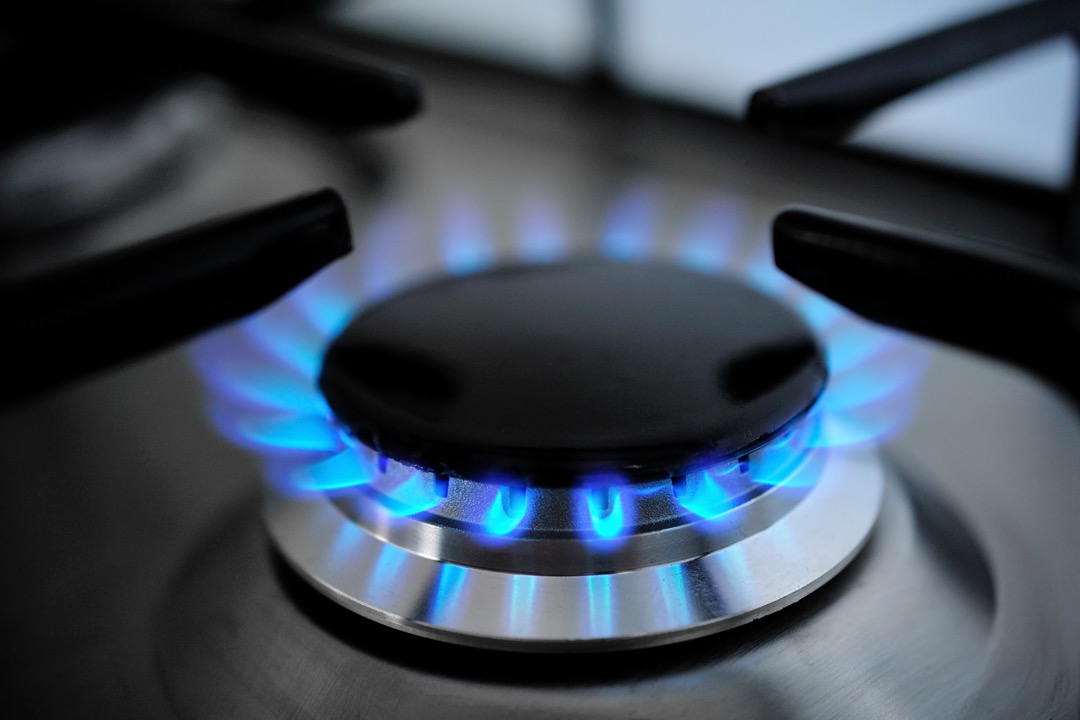We specialise in providing expert gas fitting services for both residential and commercial properties. Whether you’re installing new gas appliances, upgrading existing systems, or need repairs and maintenance, our certified gas fitters ensure your system is safe, efficient, and up to code.
Our services include:
Gas Appliance Installation
Proper installation of gas appliances is essential for both safety and efficiency. Whether it’s a new stove, water heater, boiler, or heater, ensuring that your gas appliance is installed correctly can help avoid dangerous issues such as gas leaks, inefficient operation, or fire hazards. Installation should always be carried out by a licensed gas fitter or professional who is qualified to handle gas lines and connections.
Our installations include the following:
- Ducted Heater Systems
- Hot Water Systems
- Cooktops
- Freestanding Cookers
- Ovens
- Space Heaters
- Wall Furnaces
- etc, if it runs on gas we’ll install it.
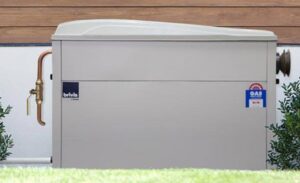
Key Considerations for Gas Appliance Installation
-
Compliance with Regulations:
-
Gas appliance installation must adhere to local building codes, safety standards, and regulations. In most regions, this requires that all gas-related work be completed by a licensed professional. These regulations ensure that installations meet safety requirements to prevent gas leaks, carbon monoxide poisoning, and other risks.
-
-
Choosing the Right Location:
-
The location of the appliance is crucial for both safety and functionality. For example, gas stoves and cooktops must be installed in well-ventilated areas, while gas water heaters should be placed in locations that are free of flammable materials.
-
Clearance Space: Appliances need sufficient clearance from walls and other objects to ensure proper airflow and prevent overheating.
-
Ventilation: Adequate ventilation is essential to prevent the buildup of carbon monoxide and other harmful gases. For combustion appliances (eg. gas heaters and hot water systems), the installation must ensure that exhaust gases are safely vented outside.
-
-
Connection to Gas Supply:
-
Our professional installers will ensure that the appliance is securely connected to the gas supply. This involves connecting the appliance to the gas line using the appropriate materials, such as copper or stainless steel flex lines, which are rated for gas use.
-
Pressure Testing: Before the gas appliance is turned on, the system should be pressure tested to ensure that there are no leaks in the connections. This is a critical step to ensure safety and prevent potential hazards.
-
Shut-off Valves: A shut-off valve should be installed near the appliance to allow for easy isolation of the gas supply in case of maintenance or emergency situations. Static Blue install gas shut off valves on all of our installations going above Australian Standards.
-
-
Proper Venting:
-
Gas appliances that produce combustion gases, such as hot water services, space heaters, and ducted heater systems, need a venting system to safely expel exhaust gases outdoors. Our installers will ensure the venting system is properly designed and installed to meet both appliance specifications and local regulations.
-
Type of Venting System: Depending on the appliance, the installer may use either a natural venting system (for older units) or a direct vent system (for newer, more efficient units). In some cases, a power-vented system may be required for units in tight or confined spaces.
-
-
Testing for Leaks:
-
After installation, our technicians will check for gas leaks around the appliance’s gas connections and supply lines. This is done using a gas leak detector or soapy water solution to ensure all connections are tight and secure. Even small leaks can be dangerous, so this step is vital to ensure the system is safe to operate.
-
-
Commissioning the Appliance:
-
Once the appliance is connected and checked for leaks, the installer will perform a thorough test run to ensure everything is working correctly. This includes verifying the appliances ignition, heat settings, and efficiency.
-
Our technicians will check that the appliance operates within the manufacturer’s specifications and that it is safely emitting combustion gases, if applicable. For example, a gas hot water system should be tested for proper flame height and gas consumption to ensure it is functioning at peak efficiency.
-
-
User Instructions and Safety Information:
-
Our installers will provide the homeowner or business owner with detailed instructions on how to operate and maintain the gas appliance. This includes safety information, such as how to turn off the appliance in an emergency, when to schedule maintenance, and signs of potential issues like gas leaks.
-
A good installer will also explain the importance of using carbon monoxide detectors near the appliance to ensure safety in case of incomplete combustion or other issues.
-
-
Sealing and Insulating:
-
Any openings or gaps around the installation should be sealed properly to prevent drafts and gas leaks. This includes ensuring that vent pipes are securely attached and sealed at the point where they exit the building.
-
Insulation may also be necessary for outdoor installations to protect the appliance from extreme weather conditions.
-
Why Professional Installation Matters:
-
Safety:
-
Gas appliances can be dangerous if not installed properly. An incorrectly installed appliance can lead to gas leaks, carbon monoxide buildup, or even explosions. Our licensed professionals know the exact standards and procedures for installation and can guarantee that the appliance is set up safely.
-
-
Efficiency and Performance:
-
Proper installation ensures that your gas appliance operates efficiently, which not only saves energy but also helps reduce running costs. For example, an improperly installed furnace or boiler can lead to reduced heat output and higher energy consumption.
-
-
Warranty and Insurance:
-
Many manufacturers and insurance companies require that gas appliances be installed by a certified professional to validate warranties and coverage. Improper installation can void the warranty and leave you responsible for repair costs.
-
-
Compliance and Legal Requirements:
-
In Australia, it is illegal to install gas appliances without proper certification. Unqualified installation can result in fines, and more importantly, it can endanger the safety of everyone in the home or building.
-
Final Thoughts
Gas appliance installation should never be taken lightly. Whether you’re installing a new appliance or replacing an old one, working with Static Blue ensures the appliance is installed according to safety standards, performs efficiently, and functions properly for years to come. Always ensure that the installer is certified and follows all local regulations and safety protocols. Proper installation not only maximizes the appliances lifespan but also provides peace of mind knowing that it’s safe to use.
Complete Gas Line Upgrades
Upgrading a gas line is a critical step to ensure the safe, efficient, and reliable supply of natural gas to your appliances, particularly in older homes or buildings with outdated gas infrastructure. Whether you’re adding new gas-powered appliances, replacing old pipes, or simply improving the gas system for greater capacity, a complete gas line upgrade involves careful planning, professional installation, and adherence to strict safety codes.
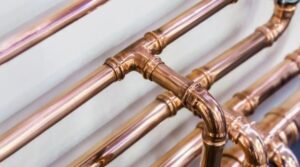
Why You Might Need a Gas Line Upgrade
-
Increased Gas Demand:
-
With the addition of new gas appliances (e.g., a new gas cooktop, hot water system, heaters or gas log fireplace), your existing gas line may no longer be able to provide adequate pressure or flow. If multiple appliances are running simultaneously, a bottleneck in the gas supply could lead to performance issues, such as fluctuating burner flames or inconsistent heating.
-
-
Old or Corroded Gas Lines:
-
Older homes, especially those built before modern gas codes, may have outdated gas lines made of materials such as galvanised steel, cast iron, or even lead. These materials can corrode, degrade, or crack over time, increasing the risk of gas leaks. An upgrade to newer materials like copper or flexible stainless steel lines can greatly improve safety and performance.
-
-
Safety Concerns:
-
Over time, gas pipes can develop leaks, cracks, or weak spots. If your gas line is damaged or deteriorating, it poses a significant risk of a gas leak, which can lead to dangerous situations such as fires or carbon monoxide poisoning. If you notice signs of wear—like gas smells, hissing sounds, or poor appliance performance—it’s time to upgrade your gas line.
-
-
Code Compliance:
-
Gas line installation and upgrades must adhere to local building codes and safety standards. If you’re renovating or remodeling, your existing gas line might no longer meet these updated codes. A professional upgrade ensures that your system complies with current regulations and is safe to use.
-
-
Future-Proofing:
-
If you plan to expand or modernise your home (e.g., adding a new kitchen, bathroom, or laundry room), an upgraded gas line can handle future appliance additions or upgrades without compromising performance. This can prevent the need for additional upgrades down the road.
-
Gas Line Inspections, Testing and Repairs
Gas leaks can pose significant risks to health, safety, and property, making early detection and prompt repairs crucial. Whether in residential, commercial, or industrial settings, it’s essential to know how to identify and manage a gas leak properly to prevent accidents such as fires, explosions, or carbon monoxide poisoning.
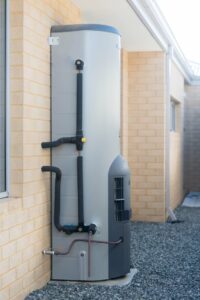
Gas Leak Detection
Signs of a Gas Leak:
-
Smell of Gas: Natural gas is odorless, but gas companies add a sulfur-like odor (similar to rotten eggs) to help with detection. If you detect this smell, it’s a clear indication of a leak.
-
Sound of Hissing: A hissing or whistling sound near gas appliances, pipes, or connections may indicate gas escaping under pressure.
-
Dead Vegetation: If you notice patches of dead grass or plants around gas lines or appliances, it may be a sign of a leak in the underground pipe.
-
Visible Damage: Cracks, bulges, or rusting on gas pipes and fittings can be visual clues of potential leaks.
-
Carbon Monoxide Detectors: These devices alert you to the presence of carbon monoxide (CO), a deadly, colorless, and odorless gas that could result from incomplete combustion due to a gas leak.
Servicing of Gas Appliances
Servicing gas appliances is essential to ensure they operate safely, efficiently, and with minimal risk of malfunction. Gas appliances, including heaters, ovens, boilers, and cooktops, should be serviced regularly by qualified professionals to check for issues such as gas leaks, incomplete combustion, or faulty ignition systems.
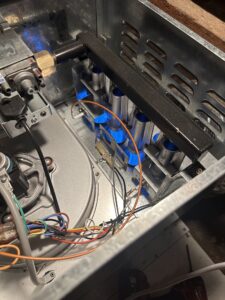
Key Aspects of Servicing Gas Appliances Include:
-
Inspection for Leaks:
-
One of the most critical safety checks is ensuring that there are no gas leaks. Gas leaks can be hazardous, leading to fire or explosion risks. Our technicians use specialised tools like gas detectors to check the integrity of the appliances gas lines, seals, and connections.
-
-
Cleaning and Maintenance:
-
Regular cleaning is crucial for the efficient performance of gas appliances. Over time, dirt, grease, or combustion byproducts can accumulate and affect performance. Components like burners, heat exchangers, and fans should be cleaned to avoid blockages that can reduce efficiency or cause overheating.
-
-
Checking Combustion:
-
Ensuring the appliance is burning gas efficiently is important not only for energy savings but also for safety. Poor combustion can lead to carbon monoxide production, a dangerous and odorless gas. Servicing typically includes checking the flame quality, burner alignment, and venting system.
-
-
Thermostat and Control Checks:
-
Thermostats and control systems are responsible for regulating temperature and operation. Malfunctioning thermostats can lead to overheating, under heating, or appliance failure. Our technicians will verify the settings, calibrate the thermostat if necessary, and test the appliances response to changes in temperature settings.
-
-
Venting System Inspection:
-
For appliances that produce combustion gases, the venting system must be clear and functional to safely expel harmful gases outside the home. Blockages, such as debris, bird nests, or rusted pipes, can cause dangerous backdrafts or poor ventilation.
-
-
Safety Features Testing:
-
Many modern gas appliances have built-in safety features like flame failure devices (FFD), which automatically shut off the gas if the flame goes out. These safety devices should be tested during servicing to ensure they are working properly.
-
-
Checking for Corrosion:
-
Gas appliances, especially those used in wet environments can be susceptible to corrosion over time. Inspecting the condition of pipes, fittings, and the appliance’s exterior can help identify early signs of rust or wear that could lead to leaks or failure.
-
Frequency of Servicing:
-
Annual Servicing: Most gas appliances should be serviced at least once a year to ensure optimal performance and safety. This is especially true for ducted heating systems, space heaters, wall furnaces and hot water systems.
-
Before Winter or Heavy Use: Servicing is especially important before colder months when appliances like heaters and hot water systems will be in frequent use.
Regular servicing not only extends the life of gas appliances but also provides peace of mind knowing that they are functioning safely and efficiently. Always seek out a licensed and qualified gas fitter for servicing, as improper handling of gas systems can be extremely dangerous.
Emergency Gas Services
We pride ourselves on delivering fast, reliable, and cost-effective solutions with a focus on safety and quality. Trust our experienced professionals to handle all your gas fitting needs, so you can enjoy peace of mind in your home or business.
Contact us today to schedule a consultation!

